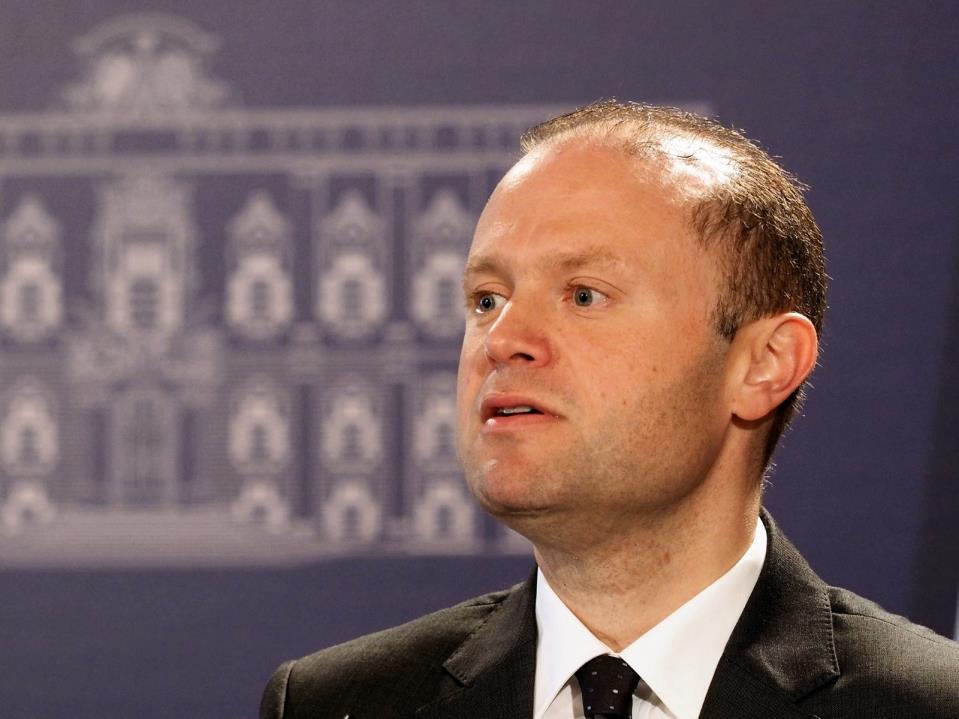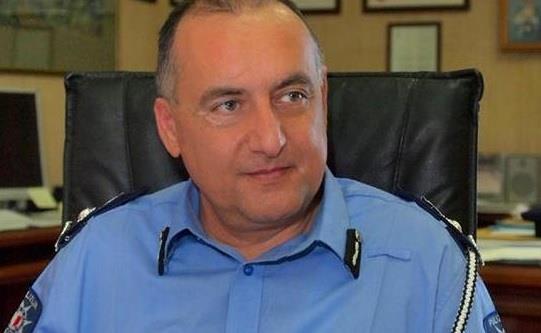The public inquiry into the assassination of journalist Daphne Caruana Galizia continued today.
Former police commissioners Michael Cassar and Peter Paul Zammit are expected to testify.
Zammit had replaced John Rizzo, who was removed from the post soon after the 2013 Labour election victory.
Rizzo and Speaker Anglu Farrugia testified on Tuesday.
Previous sittings before the inquiry, led by retired judge Michael Mallia, saw the testimony of the closest relatives to the journalist, who was killed in a car bomb on 16 October 2017. These included her parents, husband, sons and sisters.
Apart from Judge Mallia, the other two members of the inquiry board are former chief Justice Joseph Said Pullicino and Madam Justice Abigail Lofaro.
Jason Azzopardi and Therese Comodini Cachia are representing the Caruana Galizia family.
The case continues on Monday 14 January at 2.30pm with Sandro Chetcuti and former Acting Commissioner Ray Zammit. On Tuesday 15 January, a confidential and anonymous testimony will be taking place.
The minute-by-minute testimony may be found below
3.33pm: That concludes Zammit's testimony. Michael Cassar testified later.
3.32pm: Zammit is asked about FIAU reports - he says that he had received some and that all of them had been passed on for investigation. "It is normal practice", he said. Asked by Said Pullicino to say whether all FIAU reports had been passed on for investigation, Zammit replies "definitely".
3.29pm: Zammit is asked by Comodini Cachia whether he is related to John Dalli: "By marriage or affinity to the fourth or fifth degree. He's the third cousin of my wife".
3.28pm: Therese Comodini Cachia asks for clarification as to whether the defects that Zammit is referring to were in the invesigation of OLAF or that of the Maltese Police. Zammit replies that the mistake of the Maltese Police was to base itself on suppositions which had been made by OLAF and which were not backed by evidence, making specific reference to phone records which showed calls between two people, noting that in four months of the investigation no phone recordings were requested. So you have a hole in the investigations, he said.
3.25pm: When the Supervisory Committee report on OLAF had been published, he had just resigned, Zammit states before noting that he was very well aware of it before it had been published. He added however that the report itself was not in the file on Dalli's case which he was handed to when he took office.
3.22pm: Said Pullicino asks him directly to assure the board that his appointment was not made so to prevent John Dalli from being taken to court. Zammit replies that he is tired of hearing the story that he had given his opinion on the Dalli case three days after he was appointed. This is not so, he says. It was three whole months after his appointment that he spoke about the case, a period in which the facts were verified and investigated. "In Dalli's case - I did not close the case, more so when the Silvio Zammit case was still open".

3.20pm: The report by the Supervisory Committee of OLAF was an eye-opener on the serious misgivings of OLAF's investigation, Zammit says.
3.17pm: Judge Said Pullicino now brings up Zammit's predecessor John Rizzo's testimony about John Dalli. Rizzo and others had agreed that there was enough evidence for Dalli to be taken to court, while Zammit had said that there was not enough evidence to take Dalli to court. Zammit replies that he had seen the file on the case with all the documentation including the OLAF report, and started questioning certain pieces which were lacking. It resulted that those questions, he said, had also been made to OLAF by their superiors. The information is that this department had found serious misgivings about how OLAF had handled Dalli's case. It wrote a whole list of defects in this investigation, meaning that the investigation started immediately on a false pretence, he said. Zammit said that he sent for Dalli and interrogated him at length either by himself, or with current police CEO Angelo Gafa, and Dalli had been very forthcoming. Zammit states that he isn't sure whether Rizzo knew about the report written by the Supervisory Committee of OLAF as this had remained hidden since July 2014. Asked whether he had asked OLAF about this, Zammit replies "OLAF don't reply to anyone".
3.14pm: Zammit says that it is extremely rare that he would discuss investigations with the ministry, but it would never be in terms of butting in, but to comment about positives from certain investigations.
3.13pm: Speaking now about his resignation, Zammit says that there was a divergence in opinion between him and Silvio Scerri - the chief of staff of the ministry overseeing the force at the time. Zammit says that he had encouraged police personnel, for instance, to further their studies - contrary to what had been allowed previously. Zammit said that he would discuss certain matters with the Ministry on one day, and the parameters would change on the next day or the day after that. Asked when this started, Zammit replies that it was between five and six months after he took the role.

3.10pm: Speaking now about his appointment to Police Commissioner, Zammit says that he was sent for by the Office of the Prime Minister, asked what he thought about the force and what he felt he could do to improve it, and whether he would accept the role. Asked by Madam Justice Lofaro whether the Prime Minister had spoken about ways by which he wanted to see the force change, Zammit replies that directly there was no such indication but that the Prime Minister had seemingly accepted his proposals for the force. "So all the output was coming from yourself", Zammit is asked. "Yes", is the reply.
3.08pm: Mallia asks whether as far as he knows that the patrols outside Caruana Galizia's residence kept taking place. Zammit says that the threat level had remained the same. But Mallia retorts by asking whether Zammit can be certain about this, to which point Zammit replies that he cannot. "Was there any verification that they were happening?", Madam Justice Lofaro asks - "No" is the reply.
3.07pm: Judge Mallia asks about Franco Debono - who still does have fixed point protection outside his residence - and whether his risk assessment was higher than that of Caruana Galizia. Zammit replies that this seems to be the case and that there was a serious threat at the time. Franco Debono was mentioned by Judge Mallia because Zammit had cited him as an example of someone who also has fixed point protection at his residence.
3.02pm: Zammit recalls an incident when the Caruana Galizia's front door had been set on fire after which there was a fixed point protection for the first time and for a long time. Frequent patrolling then followed, but Zammit says that it was not under his remit back then to know whether there was heightened alert.
2.59pm: Asked by Madam Justice Lofaro whether therefore the frequent patrolling continued, Zammit replies: "As far as I know, yes. I never gave the order for it to be removed." Asked whether he had any feedback from the Security Services with regards to Caruana Galizia, he said that he had never received any information from them on her security.
2.58pm: Judge Mallia asks whether there were any risk assessments done for Caruana Galizia, to which Zammit replies that during his time he doesn't think that there were save for one occasion, when a parliamentary question was asked about protection to Caruana Galizia. It had then been ascertained that there was frequent patrolling of the area, and that there was no reason to change this.

2.57pm: Asked if there is a register of persons at risk, Zammit states that during his tenure there was no such register but that he had not changed any established procedure in this regard.
2.54pm: Zammit explains that the detail of duties at the district - in this case the Mosta police district - would contain any changes in security arrangements, but that there isn't a central register for this at the central police depot.
2.53pm: He said that there was nothing to indicate that there was a threat to Caruana Galizia at the time. Zammit said that the patrols had continued after the 2013 election, but that the fixed point was only until the election passed. Asked by Madam Justice Lofaro about the contradiction that it was being said that the patrols had stopped, Zammit said that he had never put through an order for them to stop but then noted that he had no control on whether it was effectively being done or not though - it's the responsibility of other members of the corps as well to make sure that they are still being done, he said.
2.50pm: Judge Mallia kicks things off by asking what measures had been in place to protect Daphne Caruana Galizia. Zammit replies that at the time of the 2013 election there was a fixed point and an order for frequent patrolling. He said that he had retained the same situation until the date he left.
2.47pm: Therese Comodini Cachia presented three FIAU leaked documents and also parts of Daphne Caruana Galizia's blog to the Board just in case they are referred to at some point during proceedings.

2.46pm: Peter Paul Zammit (above) will be the first to testify. Peter Paul Zammit served as Police Commissioner between April 2013 and June 2014.
2.45pm: Judges enter the courtroom. Sitting is about to start.
2.32pm: Daphne's husband Peter Caruana Galizia and her sister Corinne Vella have arrived too.
2.30pm: There is a delay in the start of the proceedings.
2.18pm: The courtroom has been opened. Daphne's parents are attending the sitting.
2.15pm: Michael Cassar and Peter Paul Zammit, who served as police commissioners, are waiting outside the courtroom.
2pm: The court room is still closed. The session will start at 2.20pm.